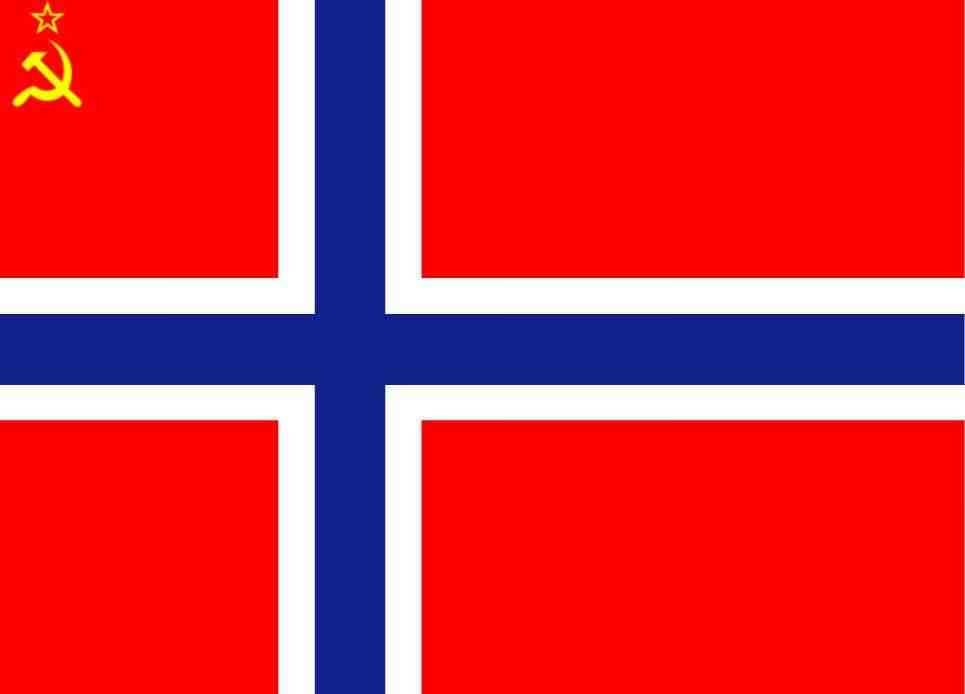
 Balti (food)
Balti (food)From Wikipedia, the free encyclopedia
Jump to: navigation, search
Balti is the name for a style of food very popular in England. Balti food was brought to UK by the expatriate Pakistani community from Mirpur and its surroundings. Balti is a popular cuisine in Mirpur and adjoining Potohar area of Northern Pakistan.
The name 'Balti' for food has nothing to do with an ethnic group living in India and Pakistan who are also called Balti. These Balti people are Tibetan Muslims. The food 'Balti' is named after the pot in which it is cooked. As mentioned in the late nineteenth century in Hobson-Jobson, the name 'balti' derives from the Portuguese word 'balde', meaning bucket/pail, taken to India by the Portuguese on their seafaring enterprises at the end of the fifteenth century. Balti food is a Punjabi recipe and prepared mainly in the Punjabi way.
The food is a hot curry-style dish, taking its name from the thick flat-bottomed steel or iron pot in which it is both cooked and served. Normally the balti is served with large naan bread; pieces of which are torn off by hand and used to scoop up the hot curry sauce from the pot. Side dishes and starters usually include onion bhajis, samosas, poppadums and creamy dips.
Balti combines the spices and ingredients of North Indian cuisine with the economics and efficiencies of Chinese cooking.
Contents [hide]
1 The origin of the word
2 Balti houses
3 See also
4 References
5 External links
[edit] The origin of the word
The origin of the word is to do with the Hindi word balty - "Balty, s. Hin. balti, a bucket. This is the Port. balde." [1] The term 'balti' refers to the steel or iron pot in which the food is cooked or served, taken from the word 'balti' in Hindi and Bengali for a bucket which is derived from the Portuguese word 'balde', meaning bucket/pail, taken to India by the Portuguese on their seafaring enterprises in late fifteenth century. Therefore, originally, the word 'balti' refers to a bucket, then evolving to its meaning as a cooking pot.
Balti gosht (meat) and balti murgh (chicken) are the popular dishes of Potohar and adjoining potohari speaking areas of Mirpur in Pakistan. A large number of expatriates to Britain came from this area of Pakistan and brought Balti cooking to the UK. Karahi Gosht is a similar style of dish popular in Punjab but Balti and Karahi are not the same dishes. The main difference is the use of onions in Balti. In both Rawalpindi and Mirpur Balti is a popular cuisine. However this dish is almost unknown in the central punjab especially Lahore where Karahi is quite popular.
Loyd Grossman, under whose name a line of British curry sauces is marketed, claims on his Balti sauce jar that the term comes from a word for "hubcap," since Indian truckers would cook their Balti in a hubcap.
According to Dr. M.A. Qureshi who is credited as the pioneer of balti dishes and also sheek kebabs and various gastronomic delights, the Balti was originated by Indian soldiers who wore tin hats in the 1st WW and would heat what ever food was available on the move in the cup-shaped headgear. As far back as the early 1960s, Dr. Qureshi owned a coffee house on Cleveland Road in Balsall Heath Birmingham, which had a loyal following of his countrymen ready to try his original and authentic dishes and take cooking lessons at his house on Court Road Balsall Heath. It is probable that many of the contemporary establishments were influenced by him.
Pat Chapman, founder of the UK Curry Club, has researched the use of curry in the UK. Chapman has traced the origins of the word back to the area of Baltistan where the nomadic people cook in a cast iron wok similar to the Chinese way of cooking. Baltistan actually shared a border with China. In his The Modern Balti Cookbook, Chapman states, "The balti pan is a round-bottomed, wok-like heavy cast-iron dish with two handles." He also states "The origins of Balti cooking are wide ranging and owe as much to China (with a slight resemblance to the spicy cooking of Szechuan) and Tibet as to the tribal ancestry of the nomad, the tastes of the Moghul emperors, the aromatic spices of Kashmir, and the 'winter foods' of lands high in the mountains."
[edit] Balti houses
Balti restaurants are often known in Birmingham as 'balti houses', although they are not private residences. Balti houses have a reputation as being inexpensive places to eat. In part, this is because they commonly have no alcohol licence, although customers who wish to drink are welcome to bring their own alcohol with them. The interior of a typical Birmingham balti house is traditionally simple, with the earliest balti houses recalled for using newspapers instead of tablecloths. Some of the more traditional establishments still have a plastic cover over the tables with the menus secured underneath.[2]
Balti houses originally clustered along and behind the main road between Sparkhill and Moseley, to the south of Birmingham city centre. This area (comprising the Ladypool Road, Stoney Lane and Stratford Road) is still sometimes referred to as the 'Balti Triangle' and contains Birmingham a high concentration of Balti restaurants, as well as some of the oldest to be found in the city. One area of Birmingham in the United Kingdom has so many ethnic restaurants that it is known as the "Balti Triangle." On 28 July 2005, a tornado [3] caused extensive damage to buildings in the Triangle, forcing many restaurants to close. A clean-up operation ensured most had reopened by the beginning of 2006.
Balti restaurants have now spread beyond the triangle, and Lye near Stourbridge to the west of Birmingham has become known as the 'Balti Mile' with up to a dozen restaurants clustered along the High Street at any one point in time.
The food and its style of presentation proved very popular during the 1980s and grew in the 1990s; Balti restaurants gradually opened up throughout the West Midlands and then a large part of Britain. The expanded curry market in Britain is now said to be worth some £4 billion annually; but some still claim that it is impossible get a 'proper' Balti outside the urban West Midlands. There is even a balti house in Australia, appropriately named the Brum Balti, which reinforces its Birmingham ties by playing a non-stop selection of tunes by 1970s Birmingham soft-rock bands such as Electric Light Orchestra and The Moody Blues. A composition titled Balti Utensil appears on the album Hamas Cinema Gaza Strip, by the English experimental electronica artist, Muslimgauze (also known as Bryn Jones).
http://en.wikipedia.org/wiki/Balti_(food)
PS.
På 99 pence butikken, i Liverpool, så koster to glass Baltisaus, fra noe merke som heter Maharani, der koster to glass, 99 pence.
Overraskende nok, siden det heter 99 pence butikk.
Men men.
De har også noe som heter 'Rogan Josh', som jeg heller ikke har sett i Norge.
Også av merke Maharani da.
Som har en indisk elefant, i logoen, så jeg trodde det var indisk mat.
Men den 'Balti'-retten, var visst også Pakistansk da.
Men det var jo samme land, i gamle dager, hvis jeg ikke tar helt feil.
Men men.
God mat var det i hvertfall.
Foreløbig så leder Balti, foran Rogan Josh.
Men jeg var veldig mett, da jeg spiste den Rogan Josh saken, så jeg har et glass igjen, av den retten, så jeg får prøve hvordan den retten smaker neste gang.
Det står også, på Wikipedia, at det er en rett som er nesten som Balti, som heter Karahi.
Kanskje det er mulig å finne den i 99 pence butikken.
Vi får se.
Det er også en del sånne sauser, som er laget med 'cream', altså fløte, istedet for tomat og grønnsaker da.
Men nå har jeg vært veldig overarbeidet i det siste, så jeg har prøvd å finne mat, som jeg tror er sunn, sånn at jeg kanskje kan få litt overskudd tilbake.
Så da tror jeg sånne retter med tomater og løk og chilli osv, som Balti da, og Rogan Josh har også grønnsaker som tomat osv., og er ikke laget av fløte f.eks.
Jeg tror de rettene som er basert på tomater og andre grønnsaker, er sunnere enn de som er basert på fløte da.
Men hvis jeg får masse overskudd og sånn, da kan jeg prøve omtrent alle de her rettene.
For de har også masse sånne morsomme Curri og Chilli-retter osv., på Tesco, og overalt i England.
Som jeg ikke har klart å se at er så kjent i Norge.
I hvertfall ikke i Rimi-butikker.
Så at folk sier at engelsk mat, bare er dårlig, det er jeg ikke 100% enig i.
For man må nesten kalle noe av den Curri-maten, for engelsk nesten, og det er snakk om veldig god mat, synes jeg.
Og det er også mye annen god mat man kan finne her i landet, hvis man prøver å feiler litt, må jeg nesten si.
Men jeg får se om jeg finner noe mer artige matretter etterhvert osv.
Vi får se.
















